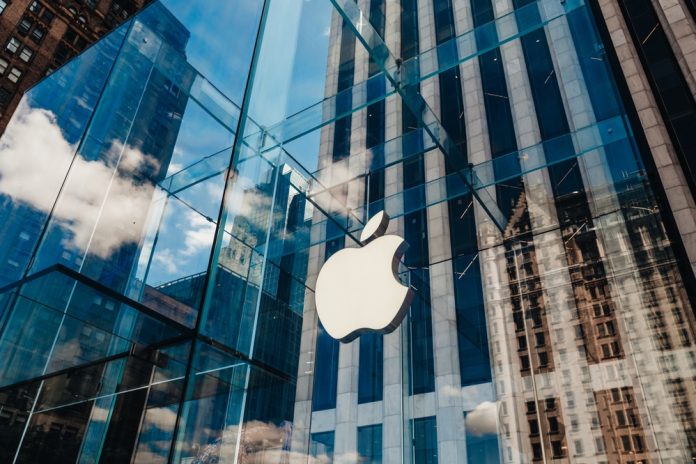
Russia’s crackdown on Western tech giant Apple highlights Putin’s intensifying war against Western cultural values, slapping the company with a $131,000 fine for alleged LGBT propaganda violations.
Key Takeaways
- A Moscow court fined Apple 10.5 million rubles ($131,000) for violating Russia’s expanded “LGBT propaganda” law and failing to remove prohibited content.
- The fine includes four separate penalties – three fines of 2.5 million rubles each for promoting “non-traditional sexual relations” and an additional 3 million rubles for failing to delete content that violated Russian laws.
- The court proceedings were largely conducted behind closed doors at Apple’s request, leaving specific details of the violations undisclosed.
- This action comes amid Russia’s broader crackdown on LGBT rights, with the government labeling the “international LGBT movement” as extremist and treating supporters as terrorists.
- Apple has increased compliance with Russian content removal requests since the Ukraine invasion, removing 12 applications in 2023 compared to seven in the previous year.
Russia Targets Apple Under Expanded Anti-LGBT Laws
The Tagansky District Court in Moscow levied its most significant legal action against Apple under Russia’s expanded censorship laws on May 19, imposing multiple fines totaling 10.5 million rubles. This severe financial penalty represents the Russian government’s ongoing efforts to eliminate what it considers “Western influence” promoting alternative lifestyles. The court divided the punishment into three separate 2.5 million ruble fines specifically for violating propaganda laws, plus an additional 3 million rubles for failing to remove content deemed illegal under Russian regulations.
Russia’s targeting of Apple represents the latest development in President Vladimir Putin’s broader campaign against what he frames as moral corruption from the West. In 2023, Russia significantly expanded restrictions on promoting “non-traditional sexual relations” beyond its 2013 law that initially targeted content accessible to minors. The new legislation established a comprehensive ban on promoting homosexuality through any form of media, imposing substantial fines for violations. Putin has consistently positioned these restrictions as necessary measures to protect Russian society from what he characterizes as moral decay in Western nations, Stated President Putin
Secretive Proceedings Leave Violations Undisclosed
Details regarding the specific content that led to Apple’s fines remain largely unknown, as court proceedings were conducted behind closed doors at the company’s request. This lack of transparency prevents public scrutiny of exactly what material on Apple’s platforms allegedly violated Russian law. Apple has not publicly commented on the rulings, maintaining silence about whether it plans to appeal the decision or comply with the removal demands. The secretive nature of the proceedings aligns with Russia’s increasingly opaque legal system, particularly regarding cases involving Western companies.
The Russian government has taken increasingly extreme positions against LGBT individuals and advocates, officially designating the “international LGBT movement” as an extremist organization. This classification effectively categorizes supporters as terrorists, potentially exposing them to criminal prosecution under Russian law. Other entities besides Apple have faced similar penalties, as Russian authorities have also targeted online film distributors and executives under the expanded “LGBT propaganda” law, demonstrating the government’s determination to enforce its cultural restrictions across all media platforms Stated LGBT
Apple’s Compliance Dilemma in Russia
Since Russia’s 2022 invasion of Ukraine, Apple has faced mounting pressure from Russian regulators, forcing the company into increasingly difficult choices about compliance. To avoid the complete shutdown of its Russian App Store, Apple has shown growing willingness to comply with content removal requests, removing 12 applications in 2023 compared to seven in the previous year. This represents Apple’s ongoing struggle to maintain its business presence in Russia while navigating increasingly restrictive content laws that conflict with the company’s public stance on inclusivity in other markets.
Apple’s challenges in Russia reflect its broader global regulatory pressures, including recent European Commission fines totaling $570 million for alleged violations of the EU’s Digital Markets Act. The company is simultaneously restructuring its global production strategy, shifting manufacturing away from China and expanding operations in India, where it now produces approximately 14% of iPhones with projections to increase to 25% by 2026. These movements suggest Apple is attempting to diversify both its regulatory exposure and production capacity while balancing compliance requirements across increasingly divided global markets.
Russia’s Cultural Fortress Against Western Values
The Russian Orthodox Church, a powerful institution closely aligned with the Putin government, has reinforced the state’s position by characterizing LGBT advocacy as a significant threat to Russia’s cultural and moral stability. This religious backing provides cultural legitimacy to the government’s crackdown, presenting it as a defense of traditional Russian values rather than simply political repression. The church’s support helps frame these restrictions as protecting Russian society rather than limiting freedom of expression, building popular support for increasingly strict censorship measures.
The fine against Apple highlights Russia’s broader pattern of using legal mechanisms to enforce cultural isolation from Western influence. By targeting prominent technology companies, Russia signals its willingness to challenge even the world’s most valuable corporations when their content conflicts with government-approved cultural standards. This approach demonstrates Putin’s determination to maintain strict control over information available to Russian citizens, particularly content that could promote social attitudes diverging from government-endorsed traditional values, reinforcing Russia’s increasing separation from global internet freedom Stated Putin



